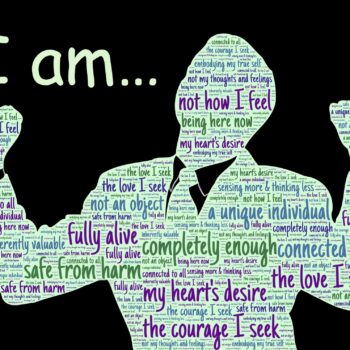Using Emotional Intelligence in Leadership Beats Uncertainty Every Time
If there is one thing we can be sure of these days, it’s that it’s difficult to be certain of much – in life or in business. If you’re in a leadership role, such uncertainty can be devastating to your organization. This is where emotional intelligence in leadership can be critical to settling your team and protecting the future of your business.
We’ve already shared thoughts on the value of mindfulness and self-care when it seems the world is falling apart around you. But that’s about you, not you in your role as a leader.
An article at EnterprisersProject.com offers and interesting take from the very first sentence: “Turbulent times call for poised, emotionally intelligent leaders.”
“Why?” author Timothy Clark then asks (and answers himself), “Because EQ is the very attribute that helps us navigate through the uncertainty and potential loss that comes with a crisis.”
Is This a Simple Crisis Management Situation?
Well, if crisis management is simple for you then, yes and congratulations. For the rest of the planet however, there are some terribly difficult and emotionally stressful challenges to overcome. These are things an emotionally intelligent leader will recognize and empathize with; not to mention offer solutions.
Living and working through any crisis situation inevitably leads to feelings of uncertainty. Recognizing these emotions in yourself and others is the first step to coping. Think of it as a message from you – to you. It’s also a message from team members to each other – and you, as well.
Learning to recognize the emotions, these Big Feelings if you will, among your team will put you on the road to helping them overcome them. Learning to help them name their fears and recognizing them without judgment will help them cope. Finally, helping them to understand that they are not alone, that virtually everyone is feeling uncertain, should begin to calm their fears.
Set Yourself Up For Leadership Success
Emotionally intelligent leaders set themselves up for success in virtually any situation, including crises. Whether industry related, natural disasters, or a worldwide health scare, your response to a crisis situation will determine how well your organization comes out the other side.
- Use collaboration to create safe spaces – Psychological safety is just as important as physical safety in times of crisis. Both lead to increased collaboration which fosters teamwork and keeps people productive. Further, productivity increases their sense of self-worth, leading to greater collaboration and teamwork and… and… and…
- Focus on listening more than talking – Can it be said too much that communication is the key to leadership? Or that listening is probably more important than yakking? While you should certainly communicate your wishes, it’s just as important that individuals understand why the team exists, how it works, and what the goals are. To know that they know what to value, you must listen.
- Be empathetic and discourage ridicule – Negativity definitely breeds contempt and, should it persist, disloyalty. (Justifiably, by the way.) Ridicule shuts people down, induces fear, and causes people to retreat from the team. As a form of personal crisis management, a need to withdraw kills teamwork and productivity more quickly than the larger crisis ever could.
Empathy is the Foundation of Emotional Intelligence in Leaders
Again, from the article mentioned above:
“Emotional intelligence is the ability to interact effectively with other humans. Yes, EQ has several components, such as awareness, perception, and regulation. But, at its core, it’s about whether you can lead through empathy, influence, and collaboration.”
Self-awareness is the key to understanding your own emotional response to a crisis. However, empathy is the key to recognizing that response in others. Not to make light of the crisis but, we have all been presented with an opportunity to learn how to be more intelligent emotionally by developing our senses of empathy and compassion.
Whether you take advantage of this opportunity to employ emotional intelligence in leadership for the good of your organization is up to you.
If you feel like you need to explore feelings of uncertainty, book a free session, where we can brainstorm an action plan for leading through a crisis. Click here to schedule your free call.
